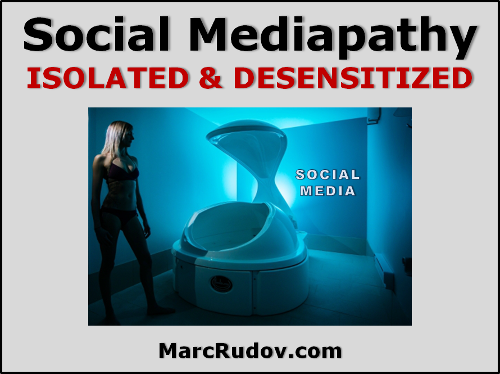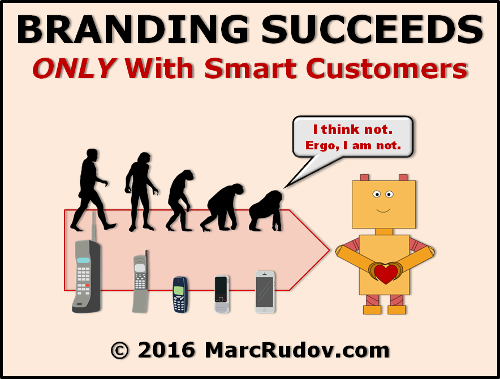 When talking to my business colleagues, in every quarter, I hear a common complaint: there is a paucity of civility and courtesy in daily discourse.
When talking to my business colleagues, in every quarter, I hear a common complaint: there is a paucity of civility and courtesy in daily discourse.
To wit: People no longer feel obligated to return phone calls and respond to emails — either in a timely manner or at all.
It’s the new norm. And, those who detest it feel helpless to fix it.
There was a time in our society, not that long ago, when such boorish behavior would get one ostracized and shunned.
No more.
Despite a dearth of public shaming, aloof oafs unwittingly devalue their firms’ brands and themselves, as the ignored parties harbor silent resentment, retaliate anonymously, and shop elsewhere.
Pretending that the aforementioned is irrelevant fantasy will both exacerbate and effect the consequences of this malady. Take it seriously.
Isolated & Desensitized
What’s going on? Are the boors too busy or unaware of these consequences?
No, they just don’t give a crap. Chalk it up to an apathetic culture.
Three intertwined causes of this widespread apathy:
- Big Government: massive statist programs and control have replaced the tradition of people helping themselves and each other: they now know, think, feel, and do less than their forebears. Whenever a problem arises in society, the first response is, We need new legislation to fix it. No more independent, critical thinking and self-reliance.
- Infantilization: Millennials’ demand for safespaces, even at their jobs, indicates a pervasive immaturity. Originating at universities, which prohibit “offensive” speech and Halloween costumes, it has infected the larger population. Ironically, babies who seek protection from “pain” are the first to inflict it, unfeelingly, on others; that’s why cosseted college students bully those whose ideas differ from theirs. The safespace tyranny is so severe that NYU suspended a professor who railed against it.
- So-called social media: Facebook, Twitter, Instagram, LinkedIn, Buzzfeed, Snapchat, etc. Characterized as “so-called social” because they have rendered their users rude, crude, vile, inept, passive-aggressive, and detached — in other words, unsocial.
Spending time on social media, akin to submerging oneself in a sensory-deprivation tank, leaves one isolated and desensitized — unable to perceive, feel, and communicate with real human beings.
I call this callous condition social mediapathy (mee-dee-APP-uh-thee).
There’s a double entendre at play here. Apathy means lack of feeling, which is rampant and ubiquitous. The suffix “pathy” means disease or disorder (neuropathy: damaged nerves). We have a damaged culture.
Either way, social mediapathy, a true scourge, nails the condition.

Examples of Social Mediapathy:
- 60 percent of Twitter users never read the tweets they share with others. Talk about disengaged and phony!
- Here’s one of my pet-peeves: The common Twitter-user disclaimer: “retweets aren’t endorsements.” Why not? Can’t commit to opinions? Don’t have convictions? Why are you retweeting something you don’t endorse? Chicken shit.
- Likaholics abound. When I post 10-minute videos on Twitter and Facebook, people “like” them within milliseconds — without having watched them. Beyond weird.
Know Your Audience
Why should you care about social mediapathy?
Branding, the CEO’s #1 responsibility, is based on appealing to adult emotions. Alas, it’s tough to conceive and execute a branding strategy when the target audience is infantilized and continuously regressing.
Newsflash: Branding success requires a smart audience.
It is no coincidence that many in your audience — and probably within your company — are now obsessed, to put it mildly, with artificial intelligence, driverless cars, robots for sex, emojis in lieu of emotions, refrigerators that automatically order food, and selfies.
Anything connected to the Internet can and will get hacked. Yet, the tech evangelists preach, and the lemmings believe, that more Internet (and dependence) is better.
The absence of common sense necessarily accompanies the death of critical thinking and self-reliance.
Man-in-the-street interviews continuously reveal how little Americans know about history, current events (other than the latest Kardashian trash), and civics — despite having all of that information at their fingertips.
Pathetic.
Parting Advice to CEOs
- It’s likely that your company heavily depends on social media, AKA the sensory-deprivation tank. Terminate this lousy strategy.
- Use email, the telephone, face-to-face selling, and tradeshows to establish direct, personal relationships with customers you can engage and verify.
- Conquer social mediapathy by acknowledging it and refusing to tolerate and perpetuate it — and ban all safespaces: Life is tough.
- Be an example of responsiveness. Fire employees who refuse to respond quickly to phone calls and emails: restore civility and courtesy in daily discourse.
- Make branding your #1 priority and responsibility.
© 2016 Marc H. Rudov. All Rights Reserved.
About the Author

Marc Rudov is a branding advisor to CEOs,
producer of MarcRudovTV, and author of four books


